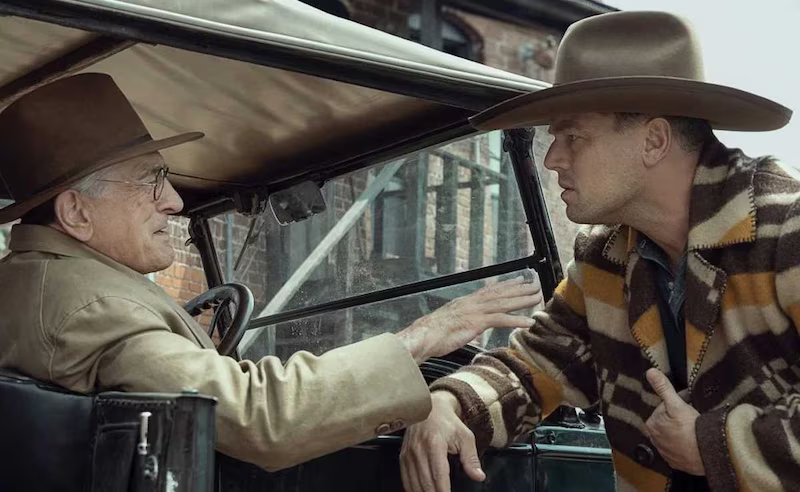Lily Gladstone and DiCaprio’s dark tale in Killers of the Flower Moon
Lily Gladstone and Leonardo DiCaprio's performances in Scorsese’s Killers resonate years later.

Killers of the Flower Moon
Time has a way of adding layers to a story, and looking back at Martin Scorsese’s Killers of the Flower Moon offers a fascinating study in cinematic evolution and bold casting choices. The film, a historical crime drama that reexamines the sinister murders of the Osage Nation, not only brought attention to a dark chapter of American history but also showcased the impressive rise of actress Lily Gladstone and a controversial turn for Leonardo DiCaprio.
The casting of Lily Gladstone as Mollie Burkhart was a beacon of representation, bringing an authentic voice to the Osage Nation's plight. Her portrayal promised a depiction of resilience amid greed and betrayal, a narrative that resonates with contemporary audiences seeking truth in historical retellings. "Certain Women breakout Lily Gladstone plays Mollie Burkhart," as reported by Slash Film, marking her as a figure of interest and intrigue in a storyline woven with tragedy and injustice.
Meanwhile, Leonardo DiCaprio, an actor synonymous with charm and heroism, took a gamble that would either tarnish or transform his gilded Hollywood reputation. DiCaprio later decided he wanted to play the more morally ambiguous Ernest Burkhart, a choice that unsettled a studio concerned about audience reactions to seeing the beloved star in a villainous role. Yet, the risk paid dividends, adding a complex layer to DiCaprio's repertoire and serving as a stark reminder of the industry's evolving narrative choices.
As the years pass, we reflect on the impact of Killers of the Flower Moon not just as a cinematic milestone but as a catalyst for broader conversations around typecasting, diversity in storytelling, and the responsibilities of historical representation. The partnership between Gladstone and DiCaprio under Scorsese’s direction was a powerful confluence of talent and subject matter, reminding us that sometimes, the most impactful stories are those that challenge us to rethink our heroes and villains.
Looking back, the film stands as a testament to the enduring power of cinema to cast light on the shadows of history, and the pivotal roles actors like Gladstone and DiCaprio play in that process. The narrative threads woven through Killers of the Flower Moon continue to resonate, proving that the stories we tell and the ways we choose to tell them can indeed become part of the collective memory, influencing and reflecting the society we navigate today.
In retrospect, the collaboration between Scorsese, Gladstone, and DiCaprio was more than just another entry in Hollywood’s archives; it was a bold statement in a period of cinematic reckoning. It's a story that, years later, still captivates and educates, reminding us of the power of film as a medium for truth-telling and moral exploration.
(Several parts of the text in this article, including the title, were generated with the help of an AI tool.)






